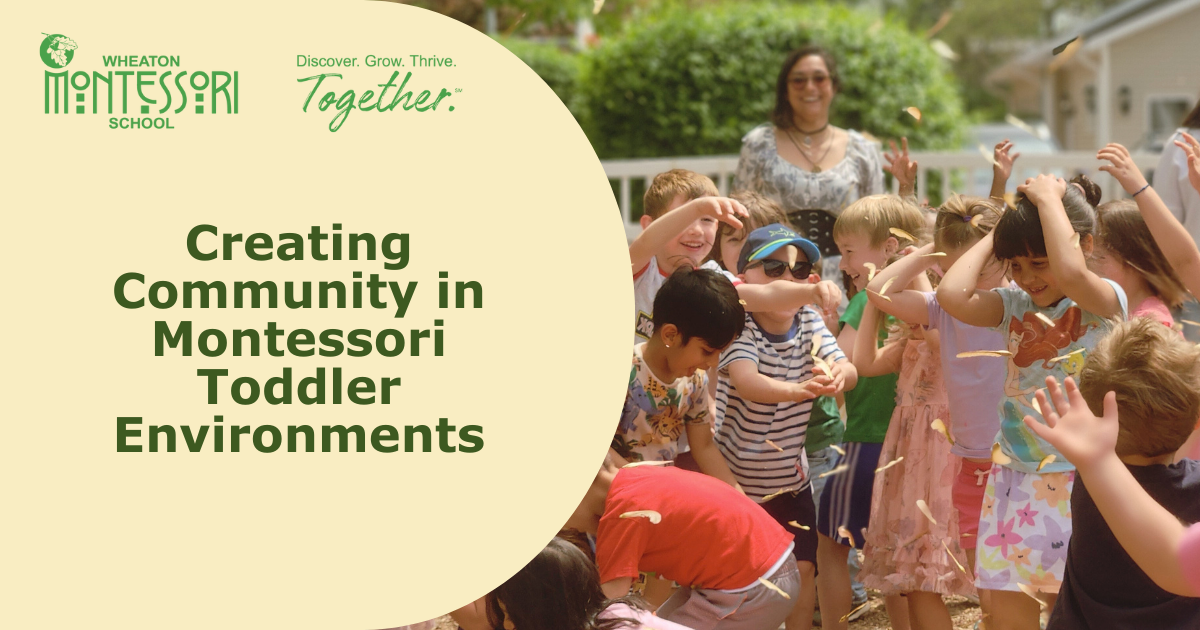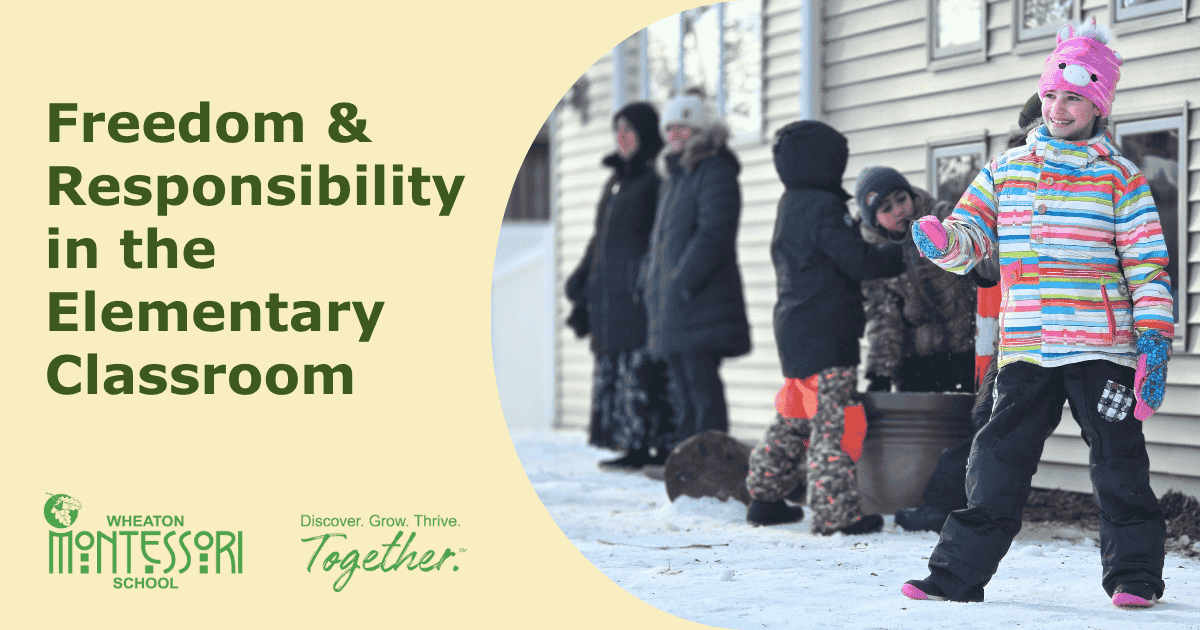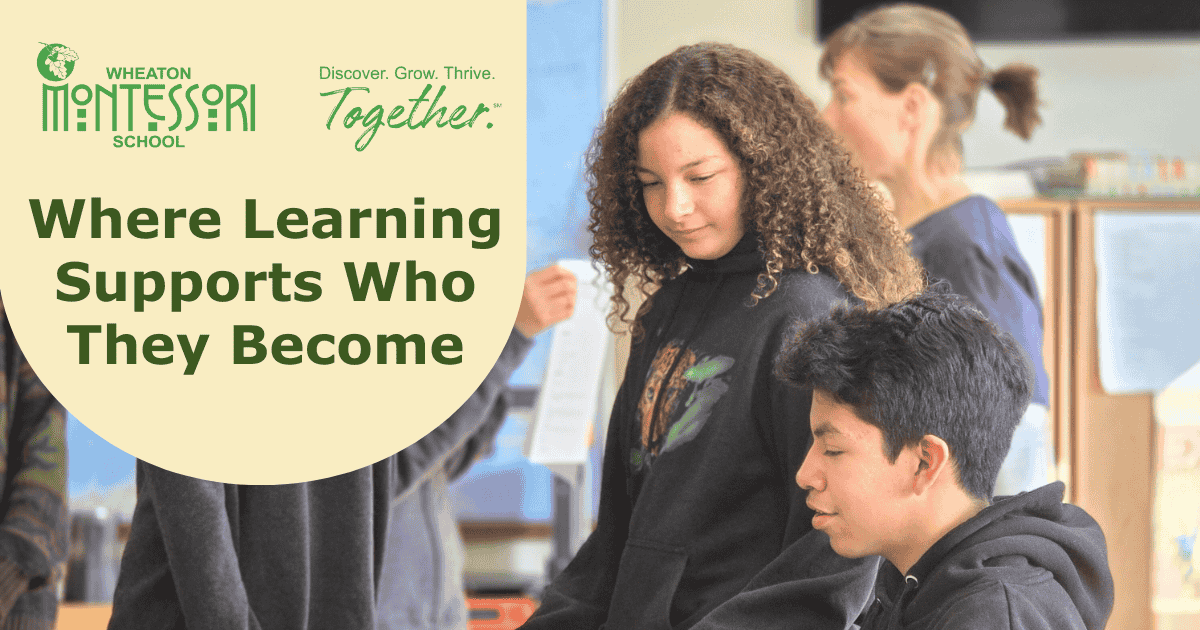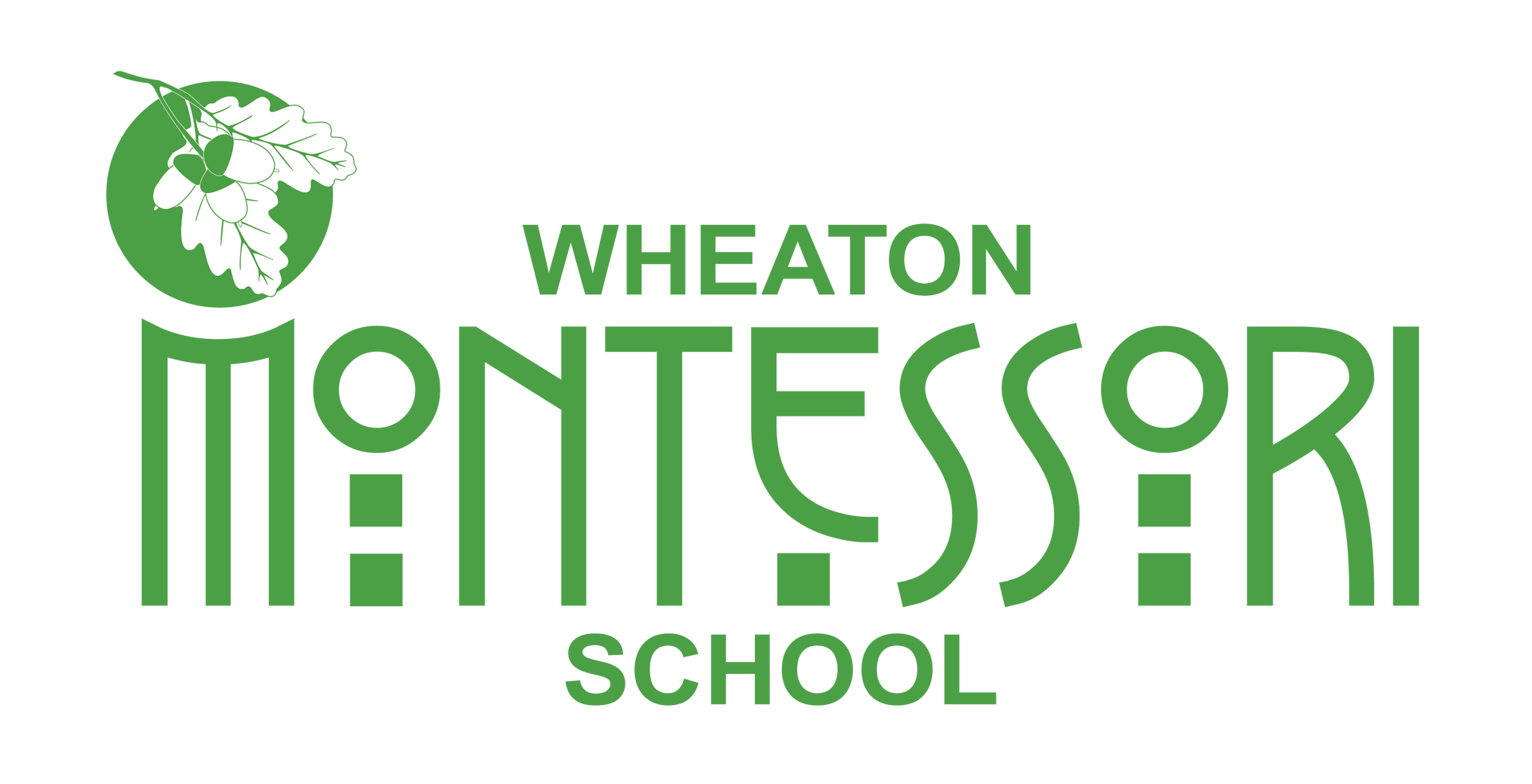
Your child deserves to feel a part of a community! Wheaton Montessori School emphasizes community, not just as an abstract concept, but as a lived daily experience. From the very beginning through the end of 9th grade, we emphasize carefully prepared environments that foster a deep sense of belonging and connection.
What Is Community?
The word community comes from the Latin communis, meaning “common, public, general, or shared by all or many.” In addition to shared space, we also think about community as a shared sense of meaning, social expectations, and connection.
At its core, community begins with the most fundamental human group: the family. Families form children’s first social experience and the first place where values, culture, and expectations are passed down. This bond has helped humans survive and thrive throughout history. It is clear that Wheaton Montessori School families love and care for each other!
Partnering with Families
In the Montessori approach, we honor and respect each family's unique values, striving to foster strong home-school relationships. Our partnership with families is a mutual journey—one in which the adult caregivers at school and home come together with a shared purpose: to nurture children’s natural growth.
Building the Community
We design our learning environments—both indoors and outdoors—to meet each child where they are, providing just the right level of challenge, comfort, and beauty. In creating a community, we focus on essential, concrete elements like people, space, and materials, while also attending to intangible aspects that provide a profound sense of order.
The People: The adults—both the teacher and teacher assistants—focus on personal and professional preparation. Their role is not to direct the child but to support their natural development with presence, purpose, and peacefulness. Teachers are highly skilled and knowledgeable about developmental stages.
The Space: The physical environment must be appropriately sized, thoughtfully arranged, and aesthetically pleasing. We design every detail—from the furniture to the flow of the day—with intention. Our classroom walls are not covered with ABCs, primary colors, and bulletin boards purposefully. Our classrooms belong to the student community and are designed to support the well-rounded social development of all students.
The Learning Materials: Everything in the classroom is purposeful, developmentally appropriate, and of the highest quality available. We carefully select activities to support children’s movement, independence, concentration, and sense of order.
Profound Order: A true Montessori community also relies on an invisible but essential structure: the order that underlies everything. Children have a fundamental need for order, especially during the first six years of life when they are in their sensitive period for order. Children are better prepared for their futures by having predictable and stable routines as young children.
External Order: Consistent expectations and a well-organized space help children form inner order and a routine, which is the foundation of emotional regulation, concentration, and autonomy.
Consistency in adults’ approaches, flow of the day, community of children, and general life permits children to focus on their learning, growth, and development. A sense of predictability actually helps children respond better when things are out of order too.
The Role of the Prepared Adult
As we create and cultivate our learning communities, we also recognize the significance of our role as adults in creating a community where toddlers through high schoolers feel safe, supported, and free to grow.
While we play a critical role in creating and maintaining a beautiful environment, we also recognize that it belongs to the children for their growth and development. To ensure that we support this development, we strive to master the art of observation, which enables us to identify what children need to aid their growth. With a deep understanding of the purpose of every material in the classroom, we can then connect children to meaningful work through intentional and respectful presentations.
We also practice humility, recognizing that children are often more in tune with their needs than we are. Our work requires us to respect each child’s human potential, even when behavior is challenging, and to love unconditionally, accepting children for who they are, not who we want them to be. This practice means that we regularly reflect on our work, always striving to improve so that we can better serve the children.
A Living, Breathing Community
Creating a Montessori community for toddlers through high school is both an art and a science that requires intentional environments, well-prepared adults, and a deep respect for children’s developmental journey.
At its heart, Wheaton Montessori School is a shared space where children learn how to be in the world together. They belong here and are contributing to the members of this school society. We are committed to providing an authentic Montessori education that focuses on each student’s needs, enabling them to discover, grow, and thrive in their unique potential grounded in authentic Montessori principles that continue to be proven and backed by scientific research on human development. We exceed the international standards of the Association Montessori International (AMI).
Schedule a visit to see what an intentionally designed community looks like in action.
Prospective families with toddlers and children under 4 are encouraged to sign up for a school tour the advantages of our Primary Program, which lays the essential foundation for our Elementary and Adolescent Community Programs*. Prospective families who are enrolled in the 2025-2026 School Year are welcome to sign up for Wheaton Montessori School summer camps.
Preschool enrollment for summer and fall 2025 is ongoing and depends on availability for eligible early childhood students. There are extremely limited spots available for new children aged 4 and under for the upcoming summer and fall of 2025.
* Individual school tours for kindergarten through 9th grade are not available, and the waitlist remains closed for the 2025-2026 School Year. The only exception is considered for students transferring from AMI-accredited Montessori schools that have maintained continuous attendance.


